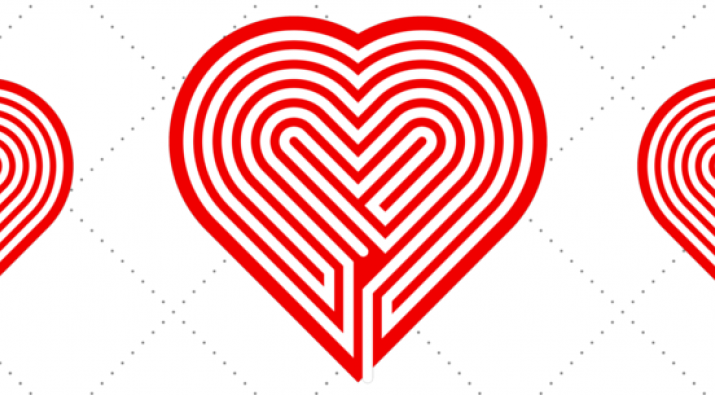
Fitness is key even as cardio tech advances.
Besides Valentine’s Day, February has another important connection to matters of the heart. It’s also American Heart Month, a time for everyone to benefit from a raised awareness of how to maintain good cardio health.
Though tremendous strides have been made against conditions involving the heart, the statistics are still alarming: According to the Centers for Disease Control and Prevention, an estimated 715,000 Americans have heart attacks each year and nearly as many die from heart disease, making it the leading cause of death for both men and women. But, the CDC insists, the good news is that heart disease is both preventable and controllable.
The coronary disease occurs when a substance called plaque builds up in the arteries that supply blood to the heart. It can cause heart attacks; angina, the chest discomfort that occurs if the heart muscle doesn’t get enough oxygen; heart failure, which occurs when the heart is unable to distribute blood flow to meet the needs of the body; and arrhythmias, or problems relating to the rate or rhythm of the heartbeat.
For Dr. Bijan Golyan, a cardiologist with affiliations at several area hospitals, “Prevention is key,” as are early detection and fast treatment.
Golyan urges his patients to “get involved with their own treatments,” saying, “They have to be active participants to care for themselves and work with their doctors.”
Technology is constantly getting more advanced, Golyan noted. “We have the techniques to make diagnoses and to treat the problem,” he said, mentioning, as an example, the T-wave alternans in an electrocardiogram, or EKG, which he said can predict up to one year in advance which patients are at high risk for cardiac arrest secondary to arrhythmias.
If a patient is shown to be at risk, the doctor said, an advanced version of a defibrillator may be implanted under the patient’s skin in the chest area, serving as “a guardian angel” that “can save a life many times over,” by delivering a dose of electrical energy to the heart.
On a walk through his suite of offices at Sinai North Shore Medical Associates on Austin Street in Forest Hills, the doctor also pointed out that the digital nuclear camera he uses to detect obstruction of blood flow to the heart is completely open, eliminating the need for patients to go into the tunnel-like machines of the past.
Tests that can be used in the treatment of cardio-related ailments include EKGs, which allow the electrical activity of the heart to be examined; echocardiograms, which use sound waves to assess how well the heart is working; and stress tests, which check the blood flow to the heart and the function of the heart when the body is put through exercise, or stress.
Advancements in angioplasties (the techniques used to widen blocked arteries) and bypass operations, as well as cardiovascular medications, such as anticoagulants, which can help prevent strokes and heart attacks, all offer hope in the treatment of heart-related ailments.
“Heart disease will always be there,” Golyan admitted. But, he said, through early detection and fast treatment, lives can be saved at ever-increasing rates. That is true, he said, even in patients whose genetic histories would have previously pointed to the likelihood of an early death sentence.
“The genes can be controlled,” Golyan said, by keeping cholesterol and blood pressure at safe levels.
The Heart Hospital of Queens at New York Hospital Queens offers several tips on how to have a healthier heart: reduce stress, eat healthily, maintain a proper weight, keep blood pressure in check and refrain from smoking.
The CDC also suggests regular exercise, limited consumption of alcohol, proper management of diabetes, a reduction of salt ingestion and the faithful taking of any prescribed medications as additional measures to ward off heart-related problems.
The adage, “An ounce of prevention is worth a pound of cure,” seems to apply to everyone who is interested in maintaining a heart-healthy lifestyle.
According to Golyan, the greatest disservice people can provide for themselves in denial. “People are afraid of knowing they have heart problems,” he said. “Don’t be afraid. Treat it if you have a problem.”
Common symptoms of heart attacks include pain or discomfort in the jaw, neck or back; a feeling of weakness or light-headedness; chest pain or discomfort; pain in the arms or shoulders; and shortness of breath.
Anyone who experiences any of those symptoms and thinks he or she is having a heart attack is advised to call 911 immediately.
The heart wants what it wants by cardiologist Bijan Golyan